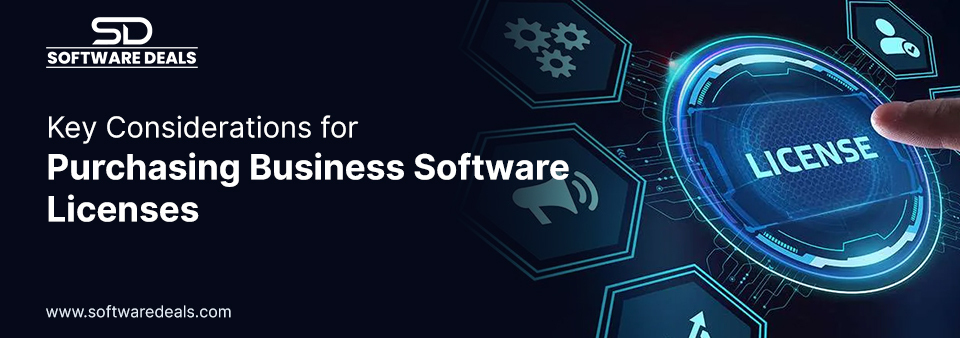Key Considerations for Purchasing Business Software Licenses
May 4, 2025

1. Understanding Licensing Types
Software licenses are not one-size-fits-all. There are various types of licenses available, including perpetual licenses, subscription-based licenses, and volume licenses.
- Perpetual Licenses allow you to use the software indefinitely after a one-time purchase.
- Subscription-Based Licenses often provide more flexibility but require ongoing payments, making it essential to evaluate your long-term needs.
- Volume Licenses are ideal for businesses that require multiple installations, offering cost-effective solutions for larger teams.
Make sure to assess which type aligns best with your business model and cash flow.
2. Compatibility
Before purchasing any software, check its compatibility with your existing systems. Different software programs may have specific hardware or operating system requirements, and ensuring that your current infrastructure can support the new software is critical. Investing in incompatible software can lead to unnecessary costs and frustration.
3. Vendor Reputation and Support
When buying software licenses, especially from third-party vendors, it's essential to consider the vendor's reputation. SoftwareDeals.com proudly boasts over 26 years of trusted service and a commitment to providing secure licensing and instant downloads. Look for customer reviews, testimonials, and any certifications that can validate the vendor’s credibility. Good customer support from the vendor is also invaluable, particularly in the event you encounter issues or need assistance.
4. Future Scalability
A software solution that works for your business today may need to adapt as your company grows. When selecting software, consider how it can scale with your operations. Will the software support additional users? Can it accommodate more features as your needs evolve? Opting for scalable software prevents the headache of needing to switch to a different program in the future.
5. Cost Considerations
A crucial aspect of any purchase is understanding the total cost of ownership. Price is a significant factor, but it's not just about the initial purchase price. Consider any additional costs such as maintenance fees, updates, and training. Comparing the total costs of different software options can help you identify the best value for your investment.
6. Trial Versions and Demos
Before committing to a purchase, take advantage of free trials or demo versions of software. This allows you to explore the functionality and features of the software first-hand, ensuring it meets your expectations and requirements without a financial commitment.
7. Licensing Compliance
Finally, adhering to licensing compliance is non-negotiable. Using software without proper licensing can lead to severe legal repercussions and financial penalties. Verify that you are purchasing from authorized resellers who provide genuine software licenses to ensure you remain compliant with software usage laws.
Conclusion
In conclusion, purchasing business software licenses is a critical investment that requires careful consideration. By understanding the different licensing types, ensuring compatibility, evaluating vendor reputation, considering future scalability, analyzing costs, testing products, and prioritizing licensing compliance, businesses can make informed purchasing decisions that align with their operational goals.
At SoftwareDeals.com, we offer a wide array of genuine software solutions from leading brands like Microsoft, Adobe, Corel, and Autodesk, all with secure licensing and instant downloads. Start exploring our collection today to find the perfect software fit for your business needs!
